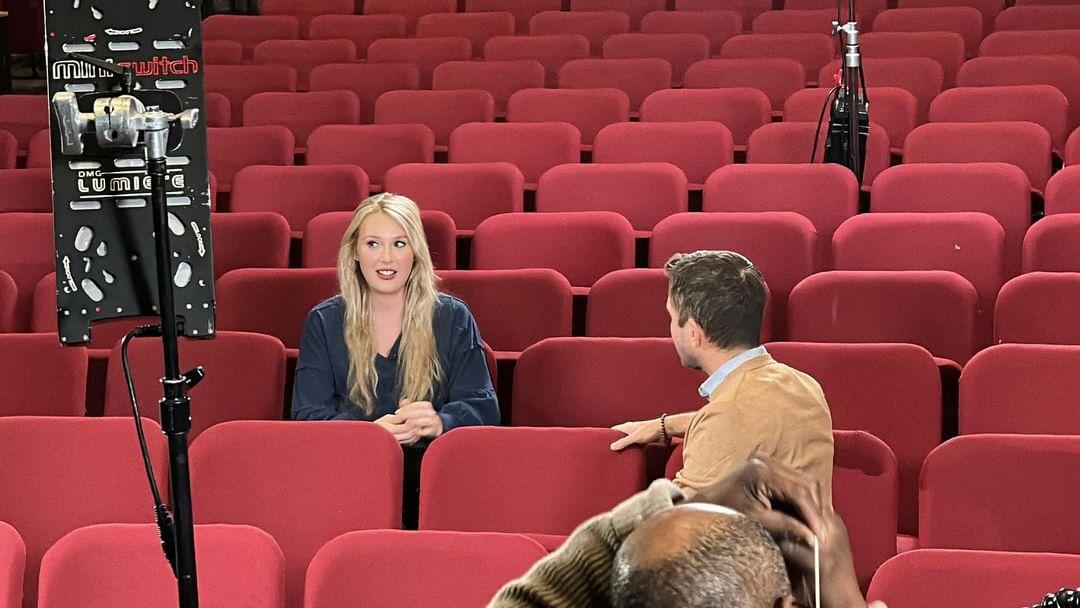Week One
A beehive. Acorn is like a beehive. Except with no queen bee.
A multitude of faces pop in and out, each with their own thoughts and tasks for the day. Everyone has their share of work and goes about doing what they wish, whether it be to support the community directly or to relax the whole day.
Established in 1993 in rural Virginia, Acorn is an egalitarian community determined to keep their founding principles such as equal opportunities and sustainability strong.
As an avid natural gardener, in school and out, I thought that visiting Acorn would be a great experience. Not only have I learned more about maintaining crops and saving seed, but how an international community functions from the inside out.
Notable aspects of the community are the Rota, where residents can sign up for chores for the week; the Announcement Board, where information can be put up for everyone to see and the weekly meetings on Thursday and Sunday. Meetings are held so that the community can talk about any issues they find are of importance, and make decisions by consensus—some meetings have lasted for five hours—with breaks, of course.
Aptly named in the center of the compound, is Heartwood, the building where all the aforementioned facets are located. Lunch and dinner are made daily by those who sign up on the Rota, while people are on their own for breakfast. Resources are cheaper because the community can buy everything they need in surplus!
My first few days at Acorn I was introduced to sustainable apparatuses like the compost toilet and the RECollective, a building made of processed straw bales that keeps cool in the summer and warm in the winter.
I learned the ins and outs of the kitchen my fourth day, making a saucy tomato dish with the same variety of tomatoes I harvested that morning labeled “party in your mouth”—meals are usually labeled with “vegan, meat, onions, etc.” for people who are sensitive to certain foods.
Besides weeding and harvesting, I fixed bean trellises after a storm knocked them down. Garden work is never done here. There is always something to do. People can pack suitable seeds in the seed office and ship them off to customers, while outside others, like myself, are planting new crops and putting compost over them.
Hopefully, next week I’ll be able to work at Twin Oaks, the mother community of Acorn, for a day and see their side of things.
For now, here at Acorn, we’re gearing up for the biggest celebration of the year tomorrow, called the Rave.
Week Two
With my second week at Acorn at coming to a close, I have become closer to the bees in the beehives, perhaps even turning into one myself.
Living with 40 people and interacting with different people everyday inclines one to experience life from every angle, even if through secondary means. Everyone here has a story, and all of us are still writing it day by day, lending our eyes and ears to absorb each other’s stories.
The community has seen people come and go, and I have noticed that this is the nature of such places. Acorn is welcoming to those who are called to it, but many of us seem to find that life spirits us elsewhere, whether for just awhile, or for years. New visitors grace the halls of Heartwood, taking the place of old pillars that took off to pursue new passions.
Just this week, four members have alerted the community of their plans to leave, while five are taking small trips with family or friends. One member of neighboring sister community, Twin Oaks, is leaving soon to go back to college for a couple years. One visitor has left today at the end of his visitor period, while two more have shown up late this week. News of arrivals and departures are commonly seen on the announcement board via thoughtful and nostalgic letters. Letters whose writers are known before their signatures are read. Whether you stay the three weeks, or three years, everyone leaves their mark here.
I think most people here know me for my cooking. Having cooked four times during my stay already, half of the time spontaneously because no one else was, I have established myself in the Heartwood kitchen.
There is something special about cooking the food that you have helped grow. A certain connection that most people today haven’t felt. It definitely makes the food taste better.
Aside from the tomato dish I first made for lunch, I have made pasta with peppers picked from our garden, chard enchiladas (due to a lack of tortillas and an excess of chard), and just yesterday evening, a tasty combination of sautéed calabash, chard, and cowpea leaves with homemade orange lemongrass sauce, mushrooms and sweet peppers, mashed potatoes, and tomato and cucumber salad.
Making dinner for 40 people is no easy ordeal; but admittedly, the delighted faces of people after taking bites of a dish make up for any stresses caused by lifting pots of boiling water and the endless peeling of garlic.
Oddly enough (or not), the most interesting conversations I have had with Acorners have been while working on tasks such as peeling and brushing artisan gourmet garlic for sale. One of the more fascinating topics I have come across are polyamorous relationships. Although fully accepted here, some might not help but wonder how a three-person relationship could work anywhere, nevertheless at a community, where all three parties work and live with each other.
As paraphrased by one of the persons in the relationship, the problems that arise from having a polyamorous relationship strengthen you physically, emotionally, and mentally. The petty problems of monogamous relationships are nothing compared to the ones potentially faced by polyamorous ones, and in the case of this person, troubles are diluted through exercise and weight training. The relationship has made the person better in their belief.
Self and community betterment are principles that are engaged whilst in play here as well. At Twin Oaks, ultimate frisbee (ultimate) is played every Wednesday and Saturday and Acorners often come to play. It was my first time playing a competitive game where there really was no competition in the traditional sense. No outstanding score was kept, the winning team rotated off after two scores—three teams of five (sometimes six) were present. Perhaps it can be partly attributed to Spirit of the Game—ultimate’s rules of conduct, where highly competitive play is encouraged, but never at the cost of mutual respect and enjoyment of the game itself, but we always played hard, not needing a scorekeeper to give us a drive, or a referee to keep us apart.
The principles of Acorn, of community, are not blatant or explicit upon just glancing across the website or taking a tour. You have to live here, talk to its inhabitants and have fun with every moment. The nature of this place is intrinsic. I have not yet seen a more interesting place, filled with this many intriguing people, living sufficiently and doing amazingly.













